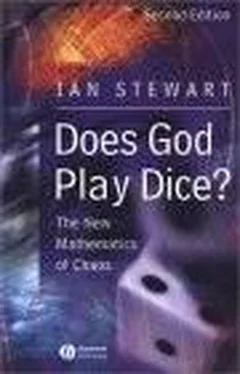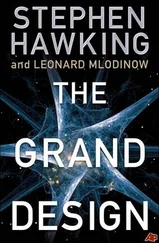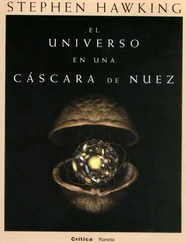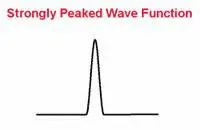
Einstein's view was what would now be called, a hidden variable theory. Hidden variable theories might seem to be the most obvious way to incorporate the Uncertainty Principle into physics. They form the basis of the mental picture of the universe, held by many scientists, and almost all philosophers of science. But these hidden variable theories are wrong. The British physicist, John Bell, who died recently, devised an experimental test that would distinguish hidden variable theories. When the experiment was carried out carefully, the results were inconsistent with hidden variables. Thus it seems that even God is bound by the Uncertainty Principle, and can not know both the position, and the speed, of a particle. So God does play dice with the universe. All the evidence points to him being an inveterate gambler, who throws the dice on every possible occasion.
Other scientists were much more ready than Einstein to modify the classical 19th century view of determinism. A new theory, called quantum mechanics, was put forward by Heisenberg, the Austrian, Erwin Schroedinger, and the British physicist, Paul Dirac. Dirac was my predecessor but one, as the Lucasian Professor in Cambridge. Although quantum mechanics has been around for nearly 70 years, it is still not generally understood or appreciated, even by those that use it to do calculations. Yet it should concern us all, because it is a completely different picture of the physical universe, and of reality itself. In quantum mechanics, particles don't have well defined positions and speeds. Instead, they are represented by what is called a wave function. This is a number at each point of space. The size of the wave function gives the probability that the particle will be found in that position. The rate, at which the wave function varies from point to point, gives the speed of the particle. One can have a wave function that is very strongly peaked in a small region. This will mean that the uncertainty in the position is small. But the wave function will vary very rapidly near the peak, up on one side, and down on the other. Thus the uncertainty in the speed will be large. Similarly, one can have wave functions where the uncertainty in the speed is small, but the uncertainty in the position is large.
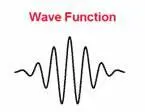
The wave function contains all that one can know of the particle, both its position, and its speed. If you know the wave function at one time, then its values at other times are determined by what is called the Schroedinger equation. Thus one still has a kind of determinism, but it is not the sort that Laplace envisaged. Instead of being able to predict the positions and speeds of particles, all we can predict is the wave function. This means that we can predict just half what we could, according to the classical 19th century view.
Although quantum mechanics leads to uncertainty, when we try to predict both the position and the speed, it still allows us to predict, with certainty, one combination of position and speed. However, even this degree of certainty, seems to be threatened by more recent developments. The problem arises because gravity can warp space-time so much, that there can be regions that we don't observe.
Interestingly enough, Laplace himself wrote a paper in 1799 on how some stars could have a gravitational field so strong that light could not escape, but would be dragged back onto the star. He even calculated that a star of the same density as the Sun, but two hundred and fifty times the size, would have this property. But although Laplace may not have realised it, the same idea had been put forward 16 years earlier by a Cambridge man, John Mitchell, in a paper in the Philosophical Transactions of the Royal Society. Both Mitchell and Laplace thought of light as consisting of particles, rather like cannon balls, that could be slowed down by gravity, and made to fall back on the star. But a famous experiment, carried out by two Americans, Michelson and Morley in 1887, showed that light always travelled at a speed of one hundred and eighty six thousand miles a second, no matter where it came from. How then could gravity slow down light, and make it fall back.
This was impossible, according to the then accepted ideas of space and time. But in 1915, Einstein put forward his revolutionary General Theory of Relativity. In this, space and time were no longer separate and independent entities. Instead, they were just different directions in a single object called space-time. This space-time was not flat, but was warped and curved by the matter and energy in it. In order to understand this, considered a sheet of rubber, with a weight placed on it, to represent a star. The weight will form a depression in the rubber, and will cause the sheet near the star to be curved, rather than flat. If one now rolls marbles on the rubber sheet, their paths will be curved, rather than being straight lines. In 1919, a British expedition to West Africa, looked at light from distant stars, that passed near the Sun during an eclipse. They found that the images of the stars were shifted slightly from their normal positions. This indicated that the paths of the light from the stars had been bent by the curved space-time near the Sun. General Relativity was confirmed.
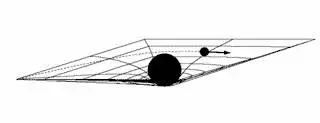
Consider now placing heavier and heavier, and more and more concentrated weights on the rubber sheet. They will depress the sheet more and more. Eventually, at a critical weight and size, they will make a bottomless hole in the sheet, which particles can fall into, but nothing can get out of.
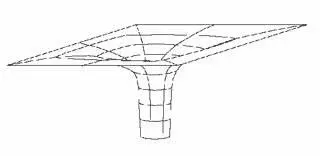
What happens in space-time according to General Relativity is rather similar. A star will curve and distort the space-time near it, more and more, the more massive and more compact the star is. If a massive star, which has burnt up its nuclear fuel, cools and shrinks below a critical size, it will quite literally make a bottomless hole in space-time, that light can't get out of. Such objects were given the name Black Holes, by the American physicist John Wheeler, who was one of the first to recognise their importance, and the problems they pose. The name caught on quickly. To Americans, it suggested something dark and mysterious, while to the British, there was the added resonance of the Black Hole of Calcutta. But the French, being French, saw a more risqué meaning. For years, they resisted the name, trou noir, claiming it was obscene. But that was a bit like trying to stand against le weekend, and other franglais. In the end, they had to give in. Who can resist a name that is such a winner?
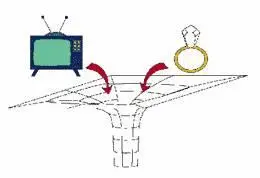
We now have observations that point to black holes in a number of objects, from binary star systems, to the centre of galaxies. So it is now generally accepted that black holes exist. But, apart from their potential for science fiction, what is their significance for determinism. The answer lies in a bumper sticker that I used to have on the door of my office: Black Holes are Out of Sight. Not only do the particles and unlucky astronauts that fall into a black hole, never come out again, but also the information that they carry, is lost forever, at least from our region of the universe. You can throw television sets, diamond rings, or even your worst enemies into a black hole, and all the black hole will remember, is the total mass, and the state of rotation. John Wheeler called this, 'A Black Hole Has No Hair.' To the French, this just confirmed their suspicions.
Читать дальше
